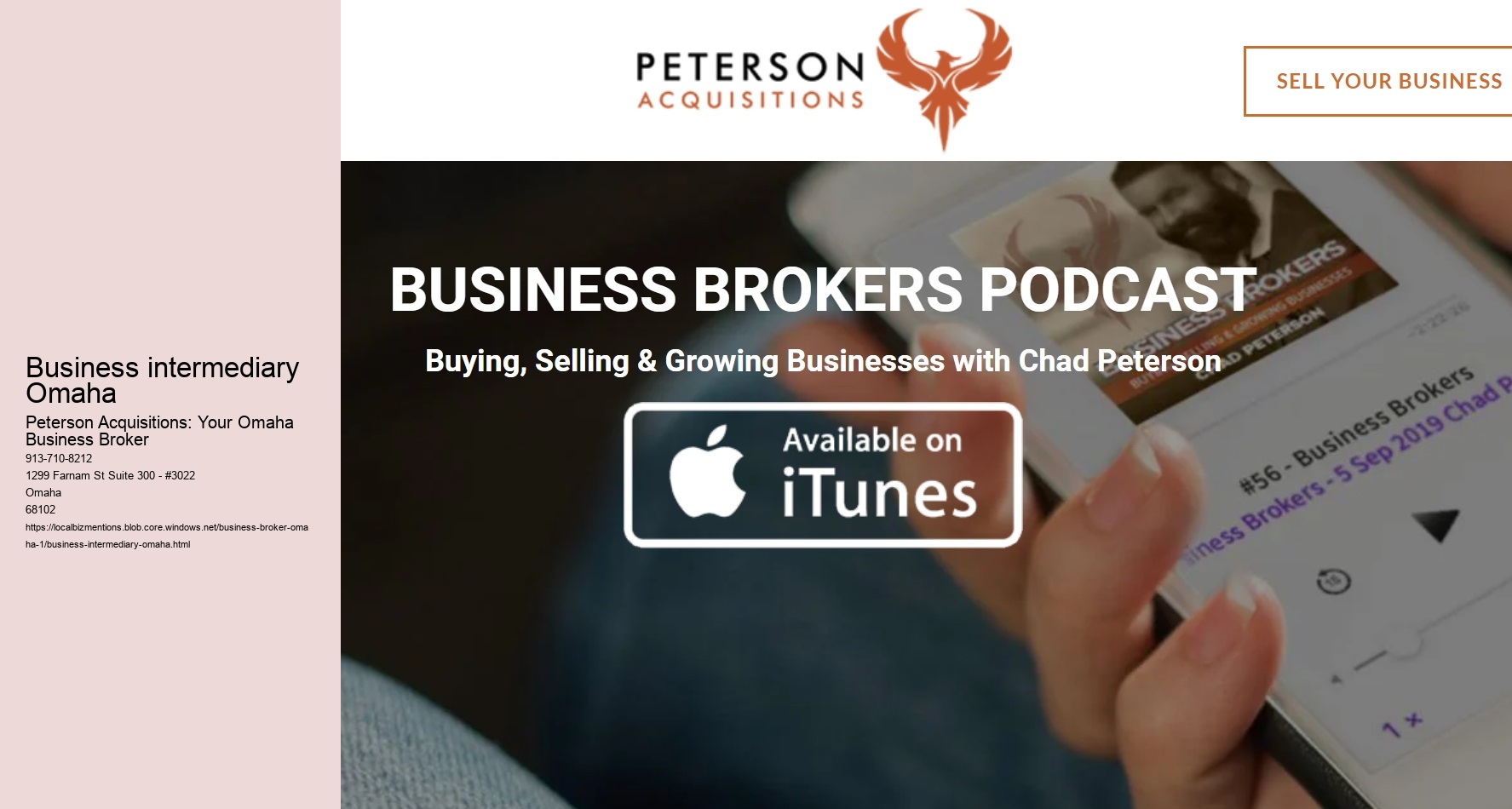Intro
Omaha, Nebraska, stands as a vibrant facility of business and industry, nestled in the Midwest's rich landscapes. Buy an existing business Omaha . This city, brimming with economic vigor and a spirit of development, uses a fertile ground for both budding business owners and knowledgeable company tycoons. The trip to acquiring a business in Omaha's vibrant and diverse industry can be elaborate and difficult, calling for specialized expertise and a eager understanding of the location's one-of-a-kind service climate. Right Here, Peterson Acquisitions, renowned as a top-tier business brokerage firm, ends up being crucial. Their ingrained proficiency in the Omaha market, combined with a collection of comprehensive services, settings them as an crucial partner in assisting you with the intricacies of service purchase. With Peterson Acquisitions, you acquire not simply a broker, yet a dedicated ally, ensuring your course to organization ownership in Omaha is browsed with skill and understanding.
Understanding the Omaha Organization Landscape
startup
Prior to delving right into the procedure of getting a organization, it's crucial to recognize Omaha's one-of-a-kind company atmosphere. Recognized for its diverse economic situation, Omaha is home to numerous Lot of money 500 firms and a thriving area of tiny and medium-sized business (SMEs). Industries varying from financing and insurance to agriculture and modern technology supply a productive ground for business investments.
Why Omaha? methodology This Midwestern gem presents a engaging case for company financial investment and development, identified by its financial strength and dynamism. Omaha's economic situation, commemorated for its consistent and secure growth, offers a reassuring environment for investors and entrepreneurs alike. The city, renowned for its flourishing service scene, offers a supporting ecosystem for startups and well established services. This assistance is evident in the extensive network of entrepreneurs and myriad service advancement resources available to support and drive company success. Moreover, Omaha's geographical positioning at the heart of the United States is a strategic advantage, specifically for businesses in the manufacturing and distribution sectors, as it assists in efficient logistics and distribution networks. In this lively landscape, Peterson Acquisitions sticks out as a essential gamer. Focusing on the Omaha market, they use custom brokerage firm services, underpinned by a deep understanding of the local business climate. Peterson Acquisitions distinguishes itself by offering tailored, critical guidance to clients, guaranteeing that their company acquisition decisions are educated and straightened with their particular goals and the distinct opportunities that Omaha presents.
Professional Market Analysis
Local Insights: They supply beneficial understandings right into the local market trends, helping you recognize successful industries.
Organization Evaluation: Their expertise in service valuation ensures you pay a fair price for any potential purchase.
Strategic Matchmaking
Identifying Opportunities: They maintain an comprehensive listing of available companies, matching your rate of interests and financial investment ability.
Due Persistance Assistance: Peterson Acquisitions helps in conducting detailed due diligence, a crucial step in examining the stability of a service.
Steps to Acquiring a Service with Peterson Acquisitions
Action 1: Recognizing Your Objectives
Begin by clarifying your goals. Are you seeking a complete operation, a fixer-upper service, or a certain sector? Peterson Acquisitions will assist align your objectives with offered opportunities.
Step 2: Financial Prep work
A essential stage in your financial investment journey. It's essential to extensively evaluate your financial preparedness, including a clear understanding of your budget restraints and capabilities. Explore exploring numerous funding options readily available, while very carefully taking into consideration the possible financial ramifications and duties that accompany your financial investment. This step makes certain a solid structure for making educated financial choices.
Action 3: Market Exploration
With Peterson Acquisitions, discover the Omaha company market. This involves checking out different industries, recognizing competitors, and identifying growth possibilities.
Tip 4: Selecting the Right Service
Once you've recognized prospective services, Peterson Acquisitions will offer extensive analysis and reports on each, aiding in making an informed choice.
Step 5: Due Diligence
This crucial phase includes verifying the financials, legal standing, and operational practicality of the business. contract Peterson Acquisitions overviews you through this complicated process.
Step 6: Arrangement and Offer
Leverage Peterson Acquisitions' competence in arrangement to make a reasonable deal. They will certainly help in structuring the handle a manner in which aligns with your monetary and calculated goals.
Step 7: Closing the Bargain
Finally, Peterson Acquisitions will certainly promote the closing procedure, guaranteeing all legal and economic facets are handled smoothly.
Post-Purchase Change
Post-purchase, Peterson Acquisitions can direct on transition approaches, ensuring a smooth handover and functional connection.
Final thought
Getting a company in Omaha uses interesting opportunities, and partnering with Peterson Acquisitions can dramatically improve your opportunities of success. Their competence, regional expertise, and dedicated solutions provide a thorough guide through the complicated process of company purchase. With the right strategy and support, your entrepreneurial journey in Omaha can be a prosperous and gratifying one.
